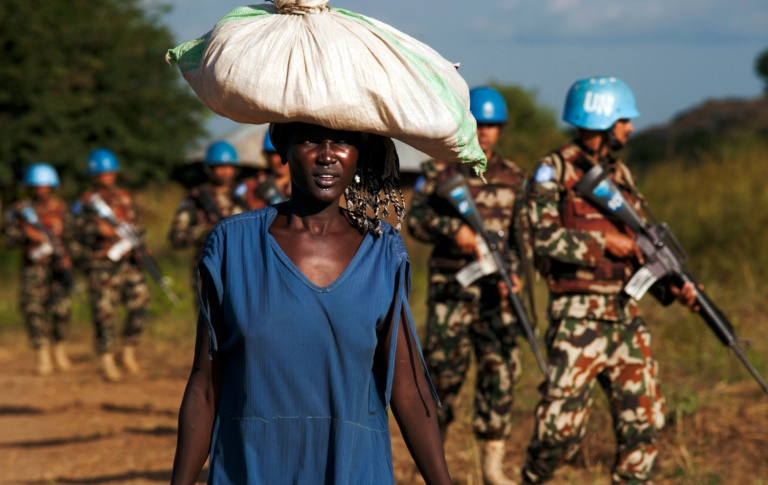NAIROBI, Kenya, Aug 16 – Kenya is optimist of fresh polls in South Sudan at the end of the implementation of a new power-sharing deal between President Salva Kiir and his former Vice President Riek Machar expected to last three years.
Foreign Affairs Cabinet Secretary Monica Juma Wednesday said she was upbeat that an eight-month pre-transition period will be concluded on schedule in order to pave way for the implementation of the deal inked on August 5 in Khartoum, Sudan.
“The transition period is expected to last eight months after which the implementation of the agreement is supposed to take thirty-six months. If the talks in the pre-transition period end before eight months, it is envisaged that the thirty-six months will be pushed forward,” she said while briefing journalists on Kenya’s international engagements.
“It is envisaged that by the end of the thirty-six months we should be in a place to organize an election in South Sudan,” the CS told reporters at her office in Nairobi.
According to the CS, the Intergovernmental Authority on Development-led (IGAD) process that midwifed the peace deal had narrowed down of ten sticking issues based on which Kiir and Machar were engaged.
“They were five issues on security and five on governance,” she said.
South Sudan’s Parliament has voted twice extending presidential and parliamentary terms by amending the transitional constitution adopted when the nation gained independence from Sudan in 2011. The two votes effectively put on hold scheduled elections on July 9, 2015, and July 9, 2018.
The CS said Kenya sent governance experts to Khartoum to draft a specific governance structure which will guide the implementation of a thirty-six month unity regime in Juba.
Prior to her comments, the United Kingdom, United States, and Norway had raised concerns over what they termed as substantial challenges that lay ahead of the implementation of the peace agreement.
The three nations said arrangements agreed upon in Khartoum were nonrealistic and unsustainable in a joint statement last week Friday.
“Considerable challenges lie ahead, and we are concerned that the arrangements agreed to date are not realistic or sustainable. Given their past leadership failures, South Sudanese leaders will need to behave differently and demonstrate commitment to peace and good governance,” the joint statement read in part.
The UK, US, and Norway encouraged IGAD to ensure the free participation all stakeholders including youth, women, and religious organizations so as their interests are safeguarded.
“The process should culminate in free, fair, and credible elections, and allow for a peaceful transition in leadership in the most expeditious and responsible manner,” they urged.
Further, they asked for development of clear plans for the transition period to address the utilization of resources and accountability.
They also urged for “meaningful checks on executive power” during the transition.
“We call on the parties to develop clear and realistic governance and security timelines and plans for the transition period; and on the IGAD member states and the African Union (AU) to continue and intensify their involvement in the implementation phase of any agreement,” UK, US, and Norway implored.
The three acknowledged reduction in fighting in Juba as “the most serious confidence-building measure of all.”
In the pendency of the transitional arrangement, UK, US, and Norway have advocated for the upholding of the United Nations Security Council arms embargo on South Sudan in addition to mitigating measure to deter the flow of “corrupt and war-making activities do not flow through their jurisdictions.”
As a gesture of good faith, President Kiir on August 9 granted a general amnesty to rebels arrested during the country’s civil war that broke out in 2016 following an attempted coup blamed on Machar.
The coup forced Machar into exile where he was put under house arrest as South Sudan sunk into chaos with two rival formations – government and rebel forces – going into a fully fledged war that had by April 2018 resulted into internal displacement of 1.8 million South Sudanese with another 296,748 becoming refugees in neighboring countries.
Machar is expected to return to Juba after unified forces are constituted within the eight-month pre-interim period.









































